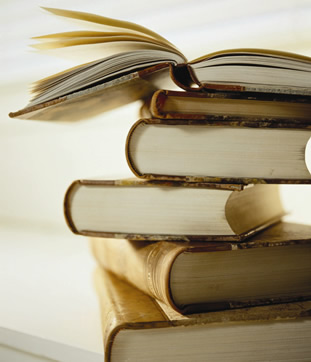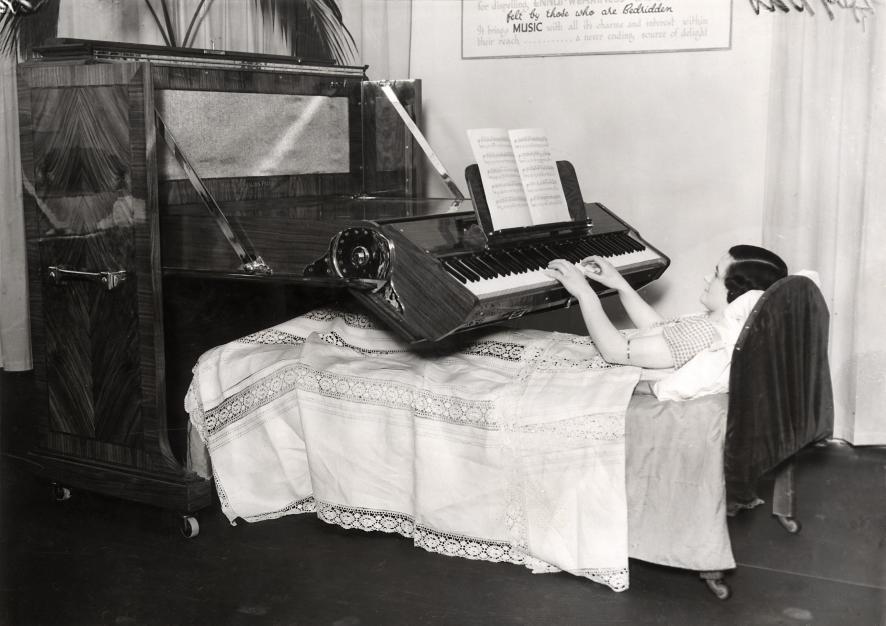
Summertime, and time to prep any works I'm going to teach the first time, and usually revisit the ones I've been teaching, especially books I've only taught once. I don't know about other teachers, but I rarely get a book right the first time out with a class. You need time with young people to learn what they'll respond to, both in the book and in your lesson objectives and designs.
And, truth be told, there are some books that will elude you year after year. Maybe they're great but difficult to get students to connect with (Huckleberry Finn's dialects are often a tremendous barrier). Maybe they're not very good to begin with. (All names of novels suppressed.) And maybe, good or bad, the book doesn't reach you, the teacher, personally and you can't get past that. You haven't found your own connection and therefore have nothing real to communicate.
I struggled with Othello the first year I taught it because neither the students nor I related to that type of extreme sexual possessiveness and jealousy. And Othello's relationship to the rest of the world, his arrogance and defensiveness are hard to reach through, or at least it was for me and a room of 16-year-olds. Then I decided to forget about sex and consider the issue: who do you trust and why? And who around us wants to hurt us, though we can't detect it? Once I approached the play from that direction, it continued to unfold new treasures.
Still, the summer daydream that keeps returning is the speculation as to what books I'd like to teach most if I had my druthers. I presume every English teacher has a list like this, perhaps not written down, but stored in the heart and only allowed in the open every once a while, when we have time to look down any other road but the prescribed curriculum.
So here is my dream list, at least as I can recall now in the early summer of 2010. No doubt other, better choices will occur later, and perhaps I'll post about them. Meanwhile, please add on your suggestions, wishes or dream books at the end of this note, or e-mail them to me.
10. Harry Potter and the Sorcerer's Stone
I don't teach 5th or 6th grade, which is really when every boy and girl in the world should be required to read this book by international law. And as wonderful and complex as the series gets, the essential message is contained in the first third of the first book--the message every kid alive needs to hear. It doesn't matter what the people you live with or the people you see every day say about you now. There are people in another place (perhaps another time) who think (or will think) that you're fantastic, that you have (or will have) special powers and abilities and that you can (or will) accomplish great things, which will benefit other people. When Harry is inundated with the invitations to come to Hogwarts that his uncle has been hiding from him--when he is overwhelmed with the knowledge that there are people who want him and care about him and will help him become what he will become--I am devastated. It's something kids need to know about themselves, one of those truths that only a fable can deliver.
9. Democracy in America
Yes, I know it's Social Studies, but they never do anything but skim it and pull quotes out of context. DeTocqueville's book is a road book (and there's a great course in and of itself), and should be read as such, perhaps even tracking the journey on a map. Sure, there are great analyses of the root characteristics of our culture and our society. But they all arise from specific observations of behaviors encountered on the road. If this book couldn't get a classroom discussion going, then the teacher involved has no business teaching. [Alternative selection - selected Dialogues of Plato. I know that sounds like heavy going, but I taught them twice to 7th graders, who wrote their own imitation dialogues and performed them.]
8. Angels in America
I teach drama and write and direct plays in schools, so I have to include a play. Angels in America is the best play written in America since Williams, Miller and Albee ruled the theater. (Albee is still writing good plays, but he is no longer the supreme ruler--Mamet is.) It is a miraculous fusion of journalism and poetry, and employs a powerful and convincing stagecraft to bring us from the lower depths to 20,000 feet above the earth. This should be our time capsule play--Dear Future America, If you want to know about the second half of the 20th century, read (and then produce) both parts of Angels in America. Any play that can put an actual literal angel next to the real Roy Cohn and make them equally plausible is a work of sheer transcendent genius. (Alternate work--Brecht's Life of Galileo, the ultimate modern work on the role of the scientist in our dangerous world, in which science is alternately demonized and weaponized.)
7. A Tree Grows In Brooklyn
(Note--I originally put My Life and Hard Times by James Thurber here. I would love to go on and on with memoir, and particularly with humorous memoir. But I have to admit that Thurber's humor, much as it appeals to me, may feel musty to a lot of students not used to the style of chaffing that was au courant 80 years ago.) There's nothing controversial or ground-breaking about ATGIB. It used to be taught in schools, but it fell off the list in favor of trendier works. But it hasn't dated a bit. The story of the love between an alcoholic father and his bright, sensitive daughter is timeless. It's about the moment you learn that your parents may be wonderful, but they are not flawless. And that you can forgive them for that.
6. Where I'm Calling From by Raymond Carver
I have such trouble breaking students of the habit of writing summaries instead of stories. They tell rather than show. We used to teach Hemingway to demonstrate the use of simple reportage in narrative, but he seems stilted and affected today. Carver is, for these purposes, the new Hemingway, and his stories feel more like screenplays than classic literature--simple descriptions of action and dialogue without rendering judgment on his very flawed and often confused characters. A wonderful model as a writer, although many of his stories involve a lot of alcohol, so a big disclaimer would be in order in the event of classroom use.
5. Catch-22
Holden Caufield just whines about the hypocrisy and absurdity of modern life, but Heller teaches us to laugh at it. Not the gentle laughter of acceptance, but the laughter of righteous anger. And, for me, literally LOL--as in, catching yourself laughing and looking around to see if anyone else noticed. Today Catch-22 itself, the rule by which asking to be found insane is definitive proof of sanity is a basic token of cultural literacy. And it would help the kids to know that the so-called "Greatest Generation" was not a mindless group of patriotic simps, awaiting orders from their benevolent leaders. A lot of them got drafted and lot of them hated their COs and hated the service and hated the whole situation that screwed up their lives, all the subsequent sanctimonious about them notwithstanding.
4. A Confederacy of Dunces
This might be a little redundant in light of Catch-22, but for me, you can't have too many laughs in English class. At least the right kind of laughs. The protagonist of Confederacy is fat, spotty and flatulent, but deserving of respect for his insane and paranoid brilliance. If any book cautions against judging a book by its cover, this one does.
3. A Prayer for Owen Meaney
I am an unreconstructed John Irving fan, and Owen Meaney is his best, for my money. I love the juxtaposition of apparent improvisation and careful working out and planning, which makes the final impossible and absurd image of the book devastating and poignant. Like Dunces, we have a misfit hero, a croaking dwarf with the heart and soul of a Cyrano.
2. Surely You're Joking, Mr. Feynman
Everyone knows we need greater integration between the sciences and the humanities, but nobody does much about it. This memoir by the Nobel-prize winning physicist is really the diary of a curious mind. It doesn't get into deep science, but it does reveal an attitude of mind that we need far more of in every walk of life. Feynman simply never took anything for granted--always questioning, always probing, always asking things he's not supposed to ask. Moreover, as Feynman's father taught him when he was a small boy, to name something, identify it, classify it is not understand what it is or how or why it works. Tradition, superstition, and culture have no place--only facts. This is becoming scarce in the fact-free universe we are building for our children, where science is being banished from Washington DC and the State of Texas. Plus the book is very entertaining and funny. Feynman is the kid who talks out of turn, but instead of getting in trouble, he makes new discoveries that benefit everyone, including the people who wanted to shush him. Not every teacher may appreciate this habit of mind, by I believe it will be de rigeur in order for the next generation to survive.
I'd like to see more popular science represented on this list, including books by Lewis Thomas, Stephen Jay Gould, Bill Bryson's Complete History of Nearly Everything, Oliver Sacks, Martin Gardner and Stephen Hawking. Perhaps readings in popular science should have its own semester during one's high school career...
1. Zen and the Art of Motorcycle Maintenance
I confess I still haven't read much philosophy--most philosophers are terrible writers and they spend so much of their time creating jargon that makes their prose impenetrable and dull. Zen is two books in one--an outward road trip via motorcycle with the author and his pre-teen son, and an inward journey, the quest for the meaning of "quality." On the way, we are treated to an introduction to the history of philosophy, plus a father-and-son story that was brought to my mind when I recently saw the film of Cormac McCarthy's book The Road. Which reminds me--I want to read that book, it might make my list next time I do this. Anyway, this book really reinforces the notion that the unexamined life is not worth living.
Actually, I wasn't sure I could fill out a list of ten when I started, but now I know I have to have left off many things that are precious to me that I would want to introduce to students. Would love to see what you come up with, and what I recall in days to come.
Since I began writing this post I finished a YA novel called Little Brother by Cory Doctorow, best known to me as one of the hosts of BoingBoing. It is a very stimulating story about security, technology, encryption, political and technological resistence and the obligations of citizens of a free state under attack. It would probably make my Top 10 list, but I want to write about it separately at length, so let me just say that not only should you read it, but you can read it FOR FREE in its entirety here. That very fact is one of the things the book is about. I hope it is a harbinger of the way our present students are going to be thinking and acting in the 21st century. More on that one later.











